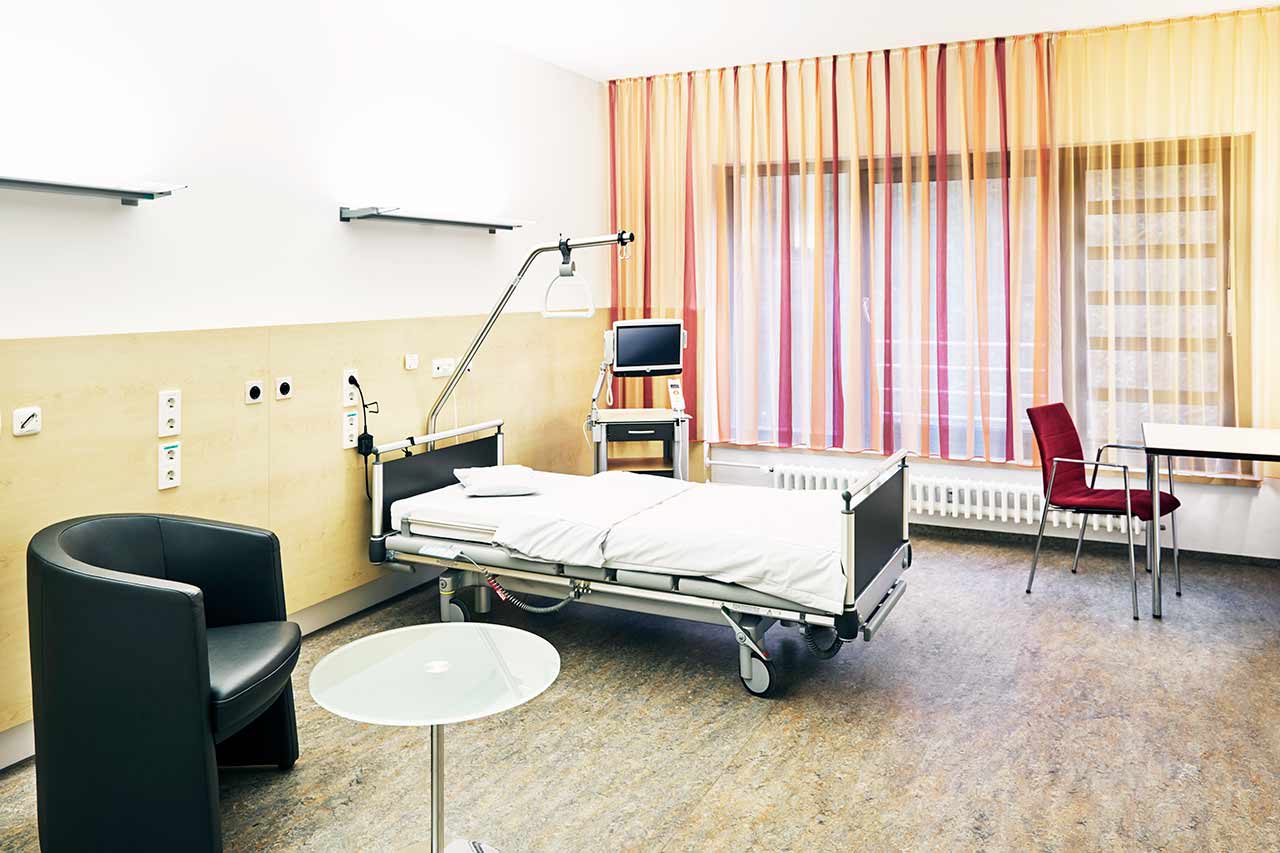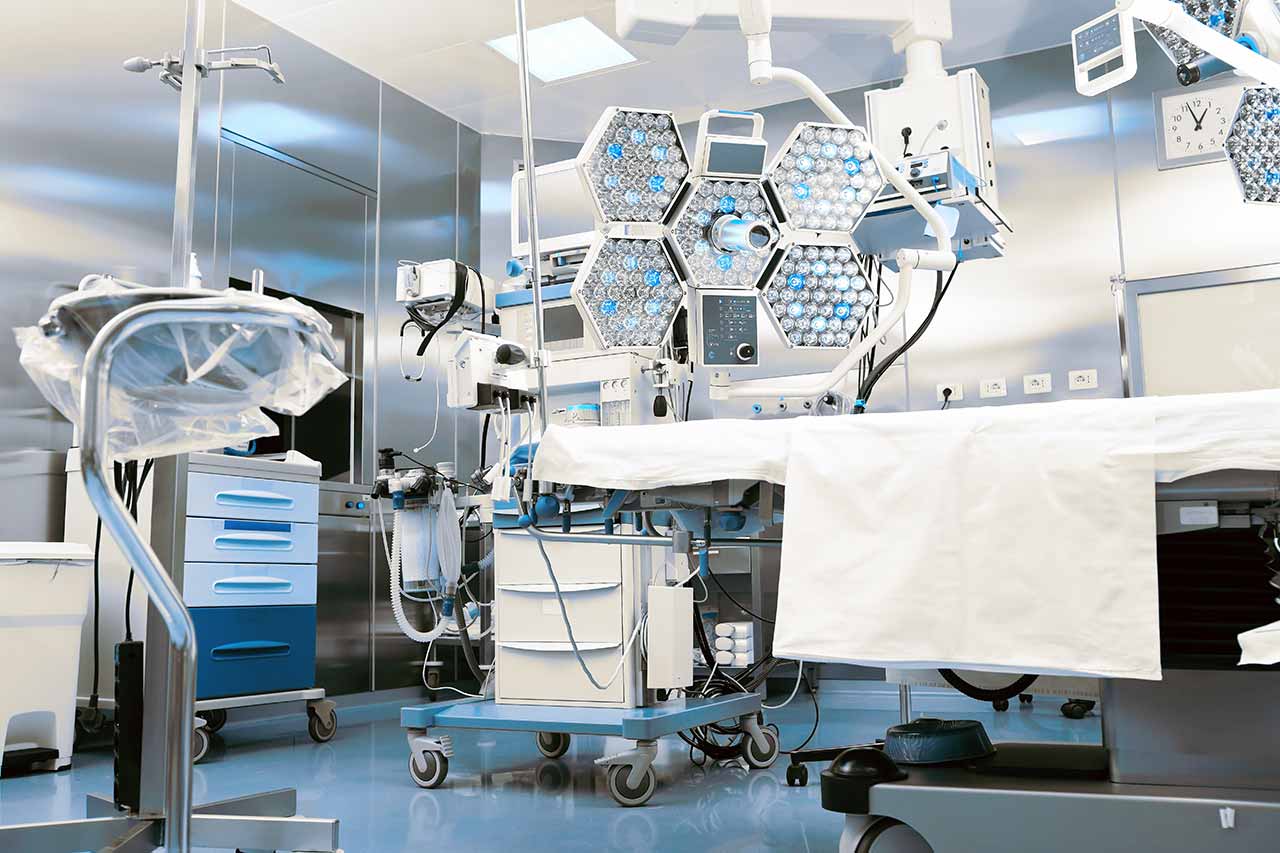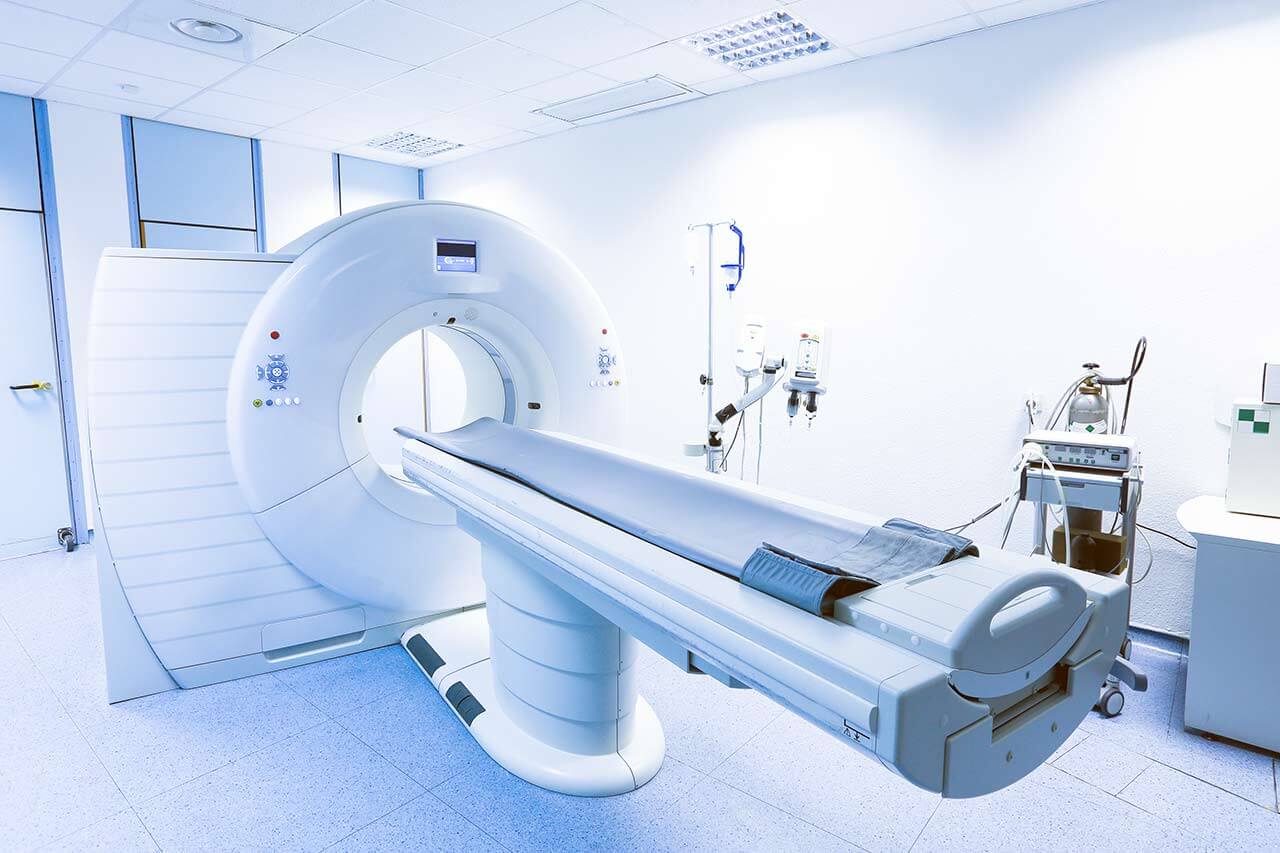
The program includes:
- Initial presentation in the clinic
- history taking
- general clinical examination
- abdominal ultrasound
- MRI scan (on indication 1200 €)
- nursing services
- consultation of related specialist
- development of individual treatment plan
- written statement
Required documents
- Medical records
- US scan (if available)
Service
You may also book:
 BookingHealth Price from:
BookingHealth Price from:
About the department
The Department of General, Abdominal, Endocrine and Colorectal Surgery at the Hospital Kassel provides the full range of diagnostic interventional procedures and surgical interventions to treat diseases of the gastrointestinal tract, liver, endocrine organs, rectum, including the surgical treatment of cancer of these organs. The department also successfully performs surgery to treat inguinal, umbilical and incisional hernias. The primary focus of the department's clinical activities is on cancer treatment – the department has the status of the only medical facility in Northern Hesse certified as the Bowel Cancer Center and the Pancreatic Cancer Center by the German Cancer Society. The certification guarantees patients cancer treatment at the highest level and in compliance with all the requirements of modern oncology. The surgical treatment can be provided both on an inpatient and outpatient basis. Whenever possible, the advanced minimally invasive techniques are used during the surgical treatment. They allow the doctors to perform the intervention through several miniature skin incisions. The operating rooms meet all safety and hygiene standards, and therefore the risk of postoperative infections and complications is almost equal to zero. The department is headed by PD Dr. med. Kia Homayounfar.
The department has excellent diagnostic options for the establishment of an accurate diagnosis and the determination of the advisability of a surgical intervention in a particular clinical case. Prior to surgery, the patient may need to undergo such tests as ultrasound scanning, endosonography and endoscopic examinations (in collaboration with the Department of Gastroenterology, Endocrinology, Diabetology and Internal Medicine), computed tomography, magnetic resonance imaging, positron emission tomography combined with computed tomography and others. The necessary complex of laboratory tests is required as well. In the case of unsatisfactory diagnostic results and detection of indications for surgery, the patient is appointed a surgical procedure.
Should cancer be confirmed in a patient, the interdisciplinary tumor board with the participation of all necessary specialists from related medical fields will elaborate a treatment regimen. As a rule, the surgical treatment itself is not enough for total removal of cancer cells, and therefore cancer patients are provided with the comprehensive treatment, which additionally includes chemotherapy, radiation therapy, targeted therapy, immunotherapy and other treatments. A special set of therapeutic procedures is selected for each patient individually, taking into account the particular type of cancer, the stage of the tumor and the course of the disease, the patient's age and his general state of health. The department's surgeons most often have to deal with the surgical treatment of colon, stomach, esophageal, liver, thyroid and parathyroid, adrenal cancers, as well as soft tissue malignancies. Many surgical procedures are performed using minimally invasive techniques, which significantly reduces the postoperative recovery period and guarantees minimal risks of any complications both during the operation and after it.
It should be noted that many interventions are performed on an outpatient basis. The department has two high-tech outpatient operating rooms. After an outpatient surgical procedure, the patient will stay for some time in a special unit with monitoring systems to control his condition. With satisfactory clinical indications, the patient will be offered to move to a special rest room or he can immediately leave the hospital.
The department's range of medical services includes:
- Diagnostics
- Diagnostic, intraoperative and interventional sonography
- Diagnostic endoscopy and endosonography (in cooperation with the Department of Gastroenterology, Endocrinology, Diabetology and Internal Medicine)
- Computed tomography
- Magnetic resonance imaging
- Positron emission tomography combined with computed tomography
- Treatment
- Surgical treatment of inflammatory, benign and malignant gastrointestinal diseases (diseases of the esophagus, stomach, liver, biliary tract, colon)
- Surgical treatment of benign and malignant endocrine diseases (diseases of the thyroid gland, parathyroid glands, pancreas and adrenal glands)
- Surgical treatment of benign and malignant soft tissue tumors, as well as inflammatory soft tissue lesions
- Surgical treatment of rectal diseases
- Surgical treatment of liver diseases
- Surgical treatment of inguinal, umbilical and incisional hernias
- Minimally invasive surgery
- Gallbladder removal
- Partial colectomy
- Inguinal hernia repair
- Surgery to treat gastroesophageal reflux disease (fundoplication)
- Total or partial removal of the adrenal glands
- Appendectomy
- Splenectomy in the cse of blood diseases
- Other diagnostic and therapeutic options
Curriculum vitae
Since June 1, 2020, PD Dr. med. Kia Homayounfar has been heading the Department of General, Abdominal, Endocrine and Colorectal Surgery at the Hospital Kassel. The specialist received his medical education at the University of Göttingen. This was followed by one-year practice in various medical facilities, including the State Hospital Tiefenbrunn in Lower Saxony, the Faculty of Medicine of the University of Wisconsin-Madison (USA) and the University Hospital Göttingen. After completing his specialized training at the Hospital Kassel and his doctoral thesis defense in 2006, Dr. Homayounfar held a position in the Department of General, Abdominal and Pediatric Surgery at the University Hospital Göttingen. The doctor worked in this hospital for 10 years (the last position was Senior Physician and Deputy Head of the Department). In 2012, Dr. Homayounfar received his Master's Degree in Healthcare Management at the Christian-Albrecht University of Kiel. In 2015, he had his board certification in General and Abdominal Surgery. In 2016, the specialist headed the Department of General, Abdominal and Endocrine Surgery at the DRK Kliniken Nordhessen, and also continued his research activities at the University of Göttingen. Dr. Homayounfar's clinical interests include the surgical treatment of malignant tumors, thyroid, parathyroid and adrenal diseases, colon diseases, hernias, etc.
Photo of the doctor: (c) Klinikum Kassel
About hospital
The Hospital Kassel is a progressive medical facility with a huge medical team, which provides high-quality medical services in all branches of modern medicine. The hospital is part of the regional medical Gesundheit Nordhessen Holding, which unites 5 top-class medical centers, including specialized rehabilitation clinics. With 1,281 beds, the hospital is known as the largest medical complex in the federal state of Hesse. The hospital has 32 specialized departments with highly qualified doctors and specially trained nursing staff in each department. The team of 3,200 employees takes care of the health of patients. The main value for each employee is the patient's health. The professional skills of the medical staff in combination with state-of-the-art medical and technical equipment of the hospital provide excellent opportunities for the treatment of patients with pathologies of any severity.
The hospital provides treatment to over 55,000 inpatients and about 140,000 outpatients every year. Medical care is provided to both German citizens and many patients from foreign countries. Such high rates are the evidence of excellent quality of medical services and the high credit of patients' trust.
The hospital has created a wonderful atmosphere, which contributes to the rapid recovery of patients. All diagnostic and therapeutic rooms, operating rooms, as well as patient rooms are designed taking into account modern standards of European medicine in order to ensure maximum comfort of each patient. All employees working in the hospital provide the patient with understanding and respect, as well as support him in every possible way during the entire therapeutic process.
The hospital successfully implements a quality management system. It uses its own quality management system implemented by the medical Gesundheit Nordhessen Holding, as well as the IQM (Initiative Qualitätsmedizin) monitoring system. As part of healthcare quality management, the hospital annually clearly provides reports on its clinical activities, the success of diagnostics, treatment, level of patient care, etc. Thus, the hospital stands for maximum openness in its work and makes every effort to maintain the highest level of quality of medical care.
Photo: (с) depositphotos
Accommodation in hospital
Patients rooms
The patients of the Hospital Kassel live in comfortable single, double and triple rooms. The patient rooms are made in a modern design and pastel colors. A standard patient room includes an automatically adjustable bed, a bedside table, a wardrobe, a table and chairs for receiving visitors, a TV and a telephone. The patient rooms have Wi-Fi. Each room has an ensuite bathroom with shower and toilet.
The hospital also offers enhanced-comfort patient rooms. Most of these rooms have a balcony. The bathroom additionally includes a hairdryer, towels and toiletries.
Meals and Menus
The patient and the accompanying person are offered tasty and balanced three meals a day. If for some reason you do not eat all foods, you will be offered an individual menu. Please inform the medical staff about your food preferences prior to treatment. The patients staying in enhanced-comfort rooms are provided with an individual menu every day.
The hospital also has several cafes where one can have a cup of tea or coffee, taste delicious pastries, salads, main hot dishes, pizza, etc.
Further details
Standard rooms include:
Religion
The religious services are available upon request.
Accompanying person
During the inpatient program, the accompanying person can live with the patient in a patient room or a hotel of his choice. Our managers will help you choose the most suitable option.
Hotel
During an outpatient program, the patient can stay at the hotel of his choice. Our managers will help you choose the most suitable option.





